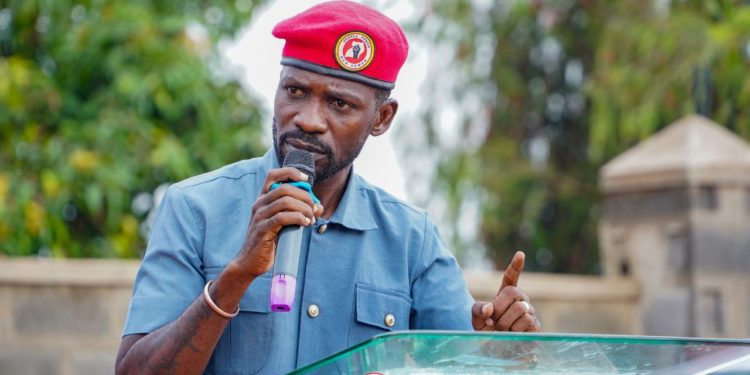By AGGREY BULUBA
National Unity Platform President Robert Kyagulanyi, popularly known as Bobi Wine, has issued a strong rebuke of President Yoweri Museveni. Kyagulanyi accuses Museveni of undermining Uganda’s once-thriving coffee sector. Kyagulanyi claims that Museveni’s administration has done more harm than good, pushing the industry into deeper trouble.
Kyagulanyi expressed disbelief over President Museveni’s recent boast of reviving the coffee sector through Operation Wealth Creation, a program run by Museveni’s family and heavily funded by the government. He argued that while Operation Wealth Creation is widely promoted, the Uganda Coffee Development Authority (UCDA), which many farmers rely on, has often been sidelined. According to Kyagulanyi, Museveni’s government is eager to claim credit for any successes while quickly shifting blame for failures—a case of “praising the cow, yet starving it.”
He reminded Ugandans of a time when the Coffee Marketing Board and cooperative societies offered substantial support to farmers across the country. But when Museveni took power in 1986, he chose to privatize, selling valuable assets at low prices rather than addressing existing issues. “It was like selling the family cow for a pittance,” Kyagulanyi remarked, emphasizing that these moves have left coffee farmers in a worse position. He claims many of these assets ended up in the hands of Museveni’s close allies, leaving farmers to fend for themselves.
For nearly four decades, Kyagulanyi argues, Uganda’s coffee industry has suffered from neglect. Although the Uganda Coffee Development Authority (UCDA) was established in 1991, it initially operated with a limited budget funded by a mere 1% export levy. Meaningful investment only began in 2013, but it was short-lived and marred by corruption. Instead of properly supporting farmers, Kyagulanyi says coffee seedlings were distributed haphazardly, like “giving seeds to the wind,” often landing in the hands of people who allowed them to wither.
He also criticized Museveni’s recent emphasis on adding value to coffee, calling it a case of “too little, too late.” Kyagulanyi argued that if the government had prioritized coffee processing back in the 1980s, Uganda could now be competing with top global brands. Instead, vital facilities were sold off, leaving the country far behind. “You can’t expect to plant thorns and harvest grapes,” he remarked, describing it as a lost opportunity that continues to haunt the nation.
Kyagulanyi questioned the decision to merge the UCDA with the Ministry of Agriculture, which he claims has failed to manage other critical sectors. Comparing it to “putting a hungry cat in charge of a fish market,” he warned that coffee farmers could suffer even more under the Ministry’s oversight. Citing a history of unfulfilled promises, he suggested that placing the coffee sector under the Ministry’s care could be disastrous.
Instead of listening to the voices of coffee farmers, Kyagulanyi believes the government has sought to silence them. He called for increased accountability and respect for the insights of key stakeholders, like leaders of successful initiatives in the Buganda Kingdom and other coffee-growing regions. According to him, a responsive government would engage openly with these groups instead of making unilateral decisions behind closed doors.
Kyagulanyi also criticized what he called the wastefulness of Museveni’s administration, arguing that while the president speaks of efficiency, his government has created an overly bloated public service with redundant roles and duplicated functions. “Too many cooks spoil the broth,” he said, pointing out that taxpayers’ money is being wasted on a government that struggles to deliver basic services effectively.
In conclusion, Kyagulanyi insisted that the UCDA is a vital component of Uganda’s coffee industry and should not be merged with the Ministry of Agriculture without careful consideration. He urged Museveni to remember that “a stitch in time saves nine,” warning that hasty decisions today could lead to significant hardships for millions of Ugandan coffee farmers in the future.







Discussion about this post